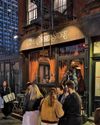Politics, mostly. And American empire.

Are Batman and Superman allies or rivals at the core? They’re definitely not enemies, and that’s only partly because they’re both superheroes. For long stretches, particularly when the characters were new (Superman was introduced in 1938, Batman the following year), they even had a deeply chummy relationship, with Batman like a non-super-powered Superman—a lesser, cheerful do-gooder who also fought for truth, justice, and the American way. It was kind of adorable, with Batman almost acting like a kid who smilingly looks up to his star-athlete older brother.
And yet, for the past 30 years, the relationship has been punctuated by a series of spectacular fights—a gruesome tussle over ideology in 1986’s graphic novel Batman: The Dark Knight Returns, a dramatic dustup owing to mind control in 2003’s comic-book story line “Hush,” and, of course, a gladiator match in the new bigscreen tentpole Batman v Superman: Dawn of Justice. At this point, nobody really remembers that early, sunny friendship— when it comes to superheroes, pure friendship’s boring. Batman and Superman are both good guys, but what we so often want to see is them fighting.
But why? Why are fans so desperate to see superheroes in conflict that writers employ absurd narrative contrivances like mind control or alternate universes to make what would otherwise be unlikely fights happen? One big answer is no answer at all—who wouldn’t want to see them fight? The adolescent part of a comics geek’s mind is perpetually asking, What’s the point of having two heroes if you aren’t also going to force them into conflict? As comics critic Chris Sims put it in a column on the topic, “When you have characters and all you see them doing is winning, it’s natural to wonder who would win harder if they ever had to compete against each other.”
Esta historia es de la edición March 21-April 3, 2016 de New York magazine.
Comience su prueba gratuita de Magzter GOLD de 7 días para acceder a miles de historias premium seleccionadas y a más de 9,000 revistas y periódicos.
Ya eres suscriptor ? Conectar
Esta historia es de la edición March 21-April 3, 2016 de New York magazine.
Comience su prueba gratuita de Magzter GOLD de 7 días para acceder a miles de historias premium seleccionadas y a más de 9,000 revistas y periódicos.
Ya eres suscriptor? Conectar

Trapped in Time
A woman relives the same day in a stunning Danish novel.

Polyphonic City
A SOFT, SHIMMERING beauty permeates the images of Mumbai that open Payal Kapadia's All We Imagine As Light. For all the nighttime bustle on display-the heave of people, the constant activity and chaos-Kapadia shoots with a flair for the illusory.

Lear at the Fountain of Youth
Kenneth Branagh's production is nipped, tucked, and facile.

A Belfast Lad Goes Home
After playing some iconic Americans, Anthony Boyle is a beloved IRA commander in a riveting new series about the Troubles.

The Pluck of the Irish
Artists from the Indiana-size island continue to dominate popular culture. Online, they've gained a rep as the \"good Europeans.\"

Houston's on Houston
The Corner Store is like an upscale chain for downtown scene-chasers.

A Brownstone That's Pink Inside
Artist Vivian Reiss's Murray Hill house of whimsy.

These Jeans Made Me Gay
The Citizens of Humanity Horseshoe pants complete my queer style.

Manic, STONED, Throttle, No Brakes
Less than six months after her Gagosian sölu show, the artist JAMIAN JULIANO-VILLAND lost her gallery and all her money and was preparing for an exhibition with two the biggest living American artists.

WHO EVER THOUGHT THAT BRIGHT PINK MEAT THAT LASTS FOR WEEKS WAS A GOOD IDEA?
Deli Meat Is Rotten